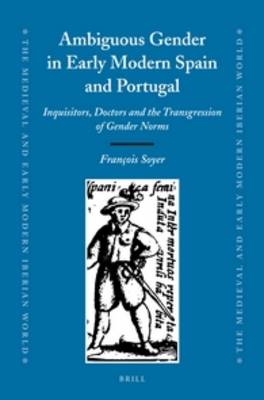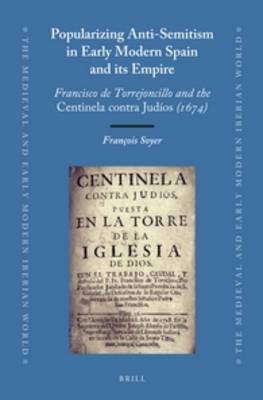Medieval and Early Modern Iberian World
2 primary works
Book 47
From the sixteenth to the eighteenth centuries, the Spanish and Portuguese Inquisitions conducted a number of trials against individuals accused by members of their communities of being of the other gender - men accused of being women and women accused of being men - or even hermaphrodites.
Using new inquisitorial sources, this study examines the complexities revolving around transgenderism and the construction of gender identity in the early modern Iberian World. It throws light upon the manner in which the Inquisition, medical practitioners and the wider society in Spain and Portugal responded to transgenderism and on the self-perception of individuals whose behaviour, whether consciously or unconsciously, flouted these social and sexual conventions.
Using new inquisitorial sources, this study examines the complexities revolving around transgenderism and the construction of gender identity in the early modern Iberian World. It throws light upon the manner in which the Inquisition, medical practitioners and the wider society in Spain and Portugal responded to transgenderism and on the self-perception of individuals whose behaviour, whether consciously or unconsciously, flouted these social and sexual conventions.
Book 54
Popularizing Anti-Semitism in Early Modern Spain and its Empire
by Francois Soyer
Published 1 January 2014
This book charts the history and influence of the most vitriolic and successful anti-Semitic polemic ever to have been printed in the early modern Hispanic world and offers the first critical edition and translation of the text into English. First printed in Madrid in 1674, the Centinela contra judios ("Sentinel against the Jews") was the work of the Franciscan Francisco de Torrejoncillo, who wrote it to defend the mission of the Spanish Inquisition, to call for the expansion of discriminatory racial statutes and, finally, to advocate in favour of the expulsion of all the descendants of converted Jews from Spain and its empire. Francisco de Torrejoncillo combined the existing racial, theological, social and economic strands within Spanish anti-Semitism to demonize the Jews and their converted descendants in Spain in a manner designed to provoke strong emotional responses from its readership.

